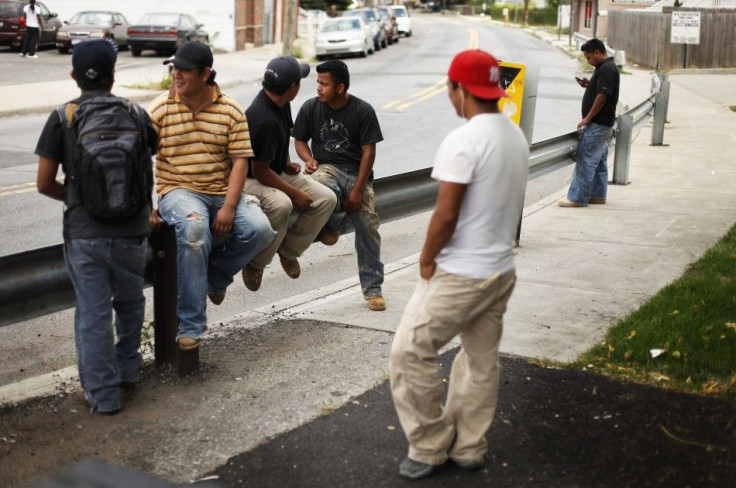White House Sets $465 Price Tag For Avoiding Deportation

The Obama administration is starting to launch an initiative that could allow hundreds of thousands of undocumented immigrants to remain in the United States, announcing on Friday that it would start accepting applications in mid-August.
Starting August 15, eligible immigrants will be able to apply for what is known as deferred action -- essentially a two-year reprieve from deportation -- and legal work authorization, at a cost of $465. Immigration officials will then review the applications on a case-by-case basis, going over paperwork for proof that immigrants meet a set of criteria.
Those criteria include undocumented immigrants having arrived in the United States before turning 16; having lived here continuously for five years; being enrolled in school or having graduated; and having a criminal record that does not include a felony, a serious misdemeanor charge or three or more minor misdemeanors.
The eligible set of immigrants is essentially the same as the population that would be addressed by the DREAM Act, a foiled bill that would have offered young undocumented immigrants a path to citizenship. While the Obama administration's new order does not offer any sort of permanent legal status, it does seek to address young immigrants who are in the country illegally by no fault of their own.
Central to this is the idea of "prosecutorial discretion" -- that is, directing immigration officials to be selective in choosing which immigrants to target for deportation. Last summer, President Obama unveiled a reordering of enforcement guidelines under which agents were instructed to pursue undocumented immigrants with criminal records rather than immigrants who had close family ties, a record of military service or other qualifiers.
The latter set of immigrants should still be protected even if they are denied deferred action. A fact sheet released by United States Citizenship and Immigration Services notes that immigrants who do not receive deferred action will not necessarily see deportation cases.
"If your case does not involve a criminal offense, fraud, or a threat to national security or public safety, your case will not be referred to [Immigration and Customs Enforcement] for purposes of removal proceedings except if [the Department of Homeland Security] determines there are exceptional circumstances," the document says.
That assurance could help boost participation in the program among undocumented immigrants who would be reluctant to submit paperwork for fear of a government reprisal.
Critics have denounced the program as a sweeping amnesty for lawbreakers, initiated without congressional input. Rep. Lamar Smith (R-Texas), who oversees immigration legislation from atop the House Judiciary Committee, hammered the administration in a released statement.
"Today's deferred action guidance is another example of how the President's policies put the interests of illegal immigrants ahead of the interests of U.S. citizens and legal immigrants," Smith said. "On the same day the unemployment rate rose to 8.3%, the Obama administration announced a requirement for illegal immigrants to apply to be able to work in the U.S. The Administration's guidelines don't just encourage illegal immigrants to work in the U.S.- they actually require them to apply to do so."
President Obama has said the new policy is not a subsitute for legislative action and has urged Congress to move on comprehensive reform. Likely Republican nominee Mitt Romney has faulted Obama for not having Congress tackle immigration but has repeatedly declined to say whether he would rescind the new policy shielding immigrants from deportation.
© Copyright IBTimes 2025. All rights reserved.





















